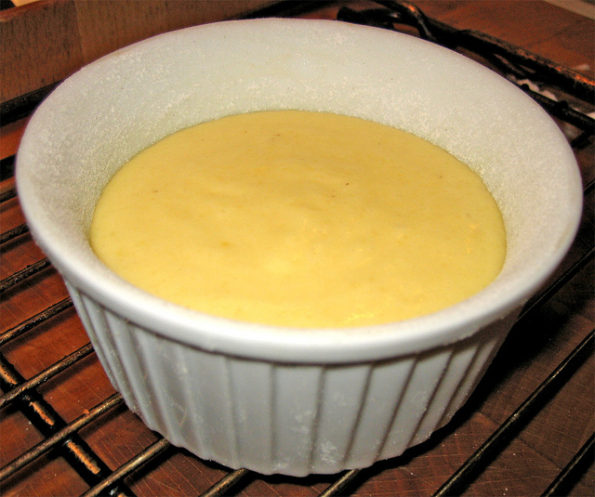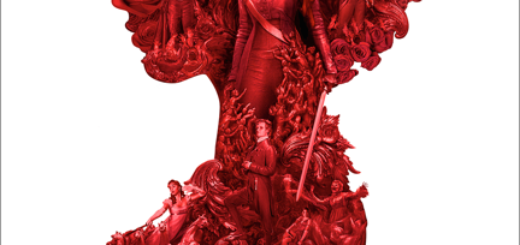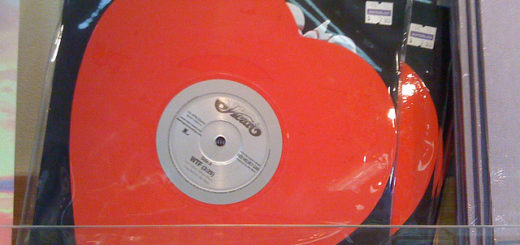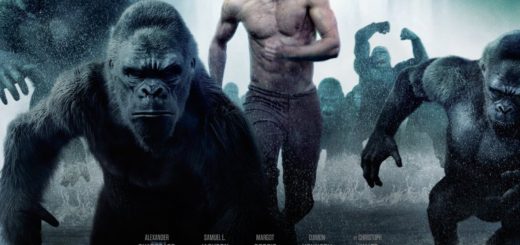You Gotta Break A Few Eggs:” Woody Allen’s “Café Society
I’m extremely proud to present a look at the new Woody Allen movie “Cafe Society” from @lordbyron080808! Enjoy!
“You Gotta Break A Few Eggs:” Woody Allen’s “Café Society”
As Autobiography And A Three-Egg Soufflé

Photo by Fugzu , via Flickr
Those who know me, know that I have taken up cooking as a personal hobby this summer, especially baking. I love to bake. There is something about the mixing of flour, eggs, and milk, and then heating it to a golden perfection that renders me profoundly happy–even when attempted in the oppressiveness of a Central Texas summer.
And one recipe that I have assayed and tenuously perfected lately has been the “cheese soufflé.” Now for most cooks, the soufflé stands as an imposingly iconic “enfant terrible” of French gastronomy. Soufflés are known for their unforgiving, and temperamental natures. In order to make them properly, you have to properly separate egg yolks from the whites. Moreover, you should never over-blend the whites. And they must be carefully folded (not mixed) into the roux mixture. Additionally, once in the oven, you can’t fuss over them, or open the oven door to spy on them. And if anyone so much as drops anything heavier than a feather within two blocks of someone baking a soufflé, the whole thing is likely to fall.
I bring up this personal account because, last Thursday, I went to see the new Woody Allen movie, “Café Society,” and watching this typically Woody Allen-esque arthouse œuvre, I was struck by how much this film artistically, dramatologically, and phenomenologically reminded me of my own recent subjective culinary experiences.
This film, in the deliberate manner of its construction, in the various very melancholically personal and intimate social and cultural allusions it hints at, and in the ephemerally delicious, yet not fully-satisfying feelings it leaves the viewer with by the end of its rather short (96 minutes,) and seemingly truncated run, reminds me of my time spent over the past month making, and perfecting, a three-egg soufflé.
Act I
Firstly, similar to the recipe of a three-egg soufflé, Allen constructs this movie very carefully according to a three-part symmetry. In a soufflé, the first part requires that the cook separate the yolks of three eggs from their whites. Setting the whites, aside, he should make a roux of flour and melted butter, and mix in a small amount of milk over a low heat to form a basic Béchamel sauce. Next fold in the yolks and blend the mixture gently. To this add your choice of flavorings from cheese to melted chocolate—I have done grated Monterrey Jack cheese, finely chopped spinach or jalapeños.
For Allen, his First Act is an almost archetypical story out of “old-Hollywood.” It requires the separation of a young, “menschy,” somewhat neurotic, Jewish young man (i.e. as per usual in an Allen film, the director’s alter ego) in his early 20s, named Bobby Dorfman, played by Jesse Eisenberg from his familiar and normal milieu of a late 1930’s New York. Dorfman travels to Hollywood as a male-ingénu, a babe-in-the-woods, to meet his mentor uncle, Phil, played by Steve Carrell, who is a stereotypical well-connected, named-dropping Hollywood talent agent After a series of deferments, his uncle hires him to do menial errands for him. To facilitate his acclimation to his new environment, he assigns his young secretary, Vonnie, played by Kristen Stewart to show him around town.
I won’t ruin the movie with too many NSFW details but, as this is Hollywood, (our American “Sodom and Gemmorah,”) I’ll just say that through a series of adventures, Bobby learns about the city and is rendered heartbroken by a boundary-pushing relationship.
Act II
So, dejected, and tired of the vacuous Hollywood lifestyle, Bobby returns home to New York for the Second Act. Here, he helps his gangster brother run a nightclub. Escaping his recent heartbreak Bobby throws himself into the frivolous lifestyle of a high-end Jazz club manager, and is very successful. At one of his parties he meets and woos a lovely, lithe, divorcée.
This second act, with its rapid, empty, and almost callous, gaiété, devil-may-care frivolity, and almost comedic brutality, strangely, reminds me of the second part of making a soufflé, wherein one whisks the egg whites vigorously full of air until they form stiff peaks. This mixture appears solid, but, in truth, its volume is a ruse, little more than polished, puffed-up trumpery. Of course, in the final third step, this meringue-like mixture is then gently folded into the cheesy Béchamel and quickly ladled into awaiting ramekins which have been greased and filled with rough breadcrumbs to help the soufflés rise.
Act III
In a similar way, Allen, in Act Three, folds his fluffed-up, late Jazz-Aged Bobby back into his ‘Hollywood Béchamel’ when ghosts from his past arrive to jeopardize his new-found happiness. Bobby is in turns disturbed and delighted as he risks his present to savor a little of what might have been. The strangeness and inappropriateness of this taboo relationship in the movie cannot be, of course, mere theatrical accident in a Woody Allen movie. For his films are well-known to be rife with autobiographical and near autobiographical references and imagery.
One has already seen Allen’s trademark use of a filmic alter ego in Eisenberg’s spot-on portrayal of a young, slightly neurotic, “menschy” New York Jew. He is, of course, playing Allen’s younger self. But Bobby’s West Coast love-affair, and his lover’s problematic social relationship to him quite obviously and quite dramatically alludes to and filmically recreates (and somewhat sanitizes) the events of Allen’s own très scandalous public life in the early 1990s, wherein he had a very publicized near-incestuous relationship with the adopted daughter (Soon-Yi Previn) of his long-term lover, Mia Farrow.
But Allen is not alone in autobiographically blurring the lines between film and real life. For Vonnie’s (Kristen Stewart) dilemma over whether she should choose between a decent young man her own age or an older, married man itself mirrors and restages the well-publicized, and scandalous, events from Stewart’s own life where she was caught canoodling with her married director, Rupert Sanders in 2012. At the time, of course, Stewart was still dating her “nice guy” “Twilight” co-star, Robert Pattison.
But Allen’s brilliant stunt-casting aside, the final important questions about this movie repeat the important questions that surround the act of soufflé-baking: “Does it rise to the occasion?” And “Was it enjoyable?” My answer, too, repeats the answers I gave to my various acts of baking: It worked so long as I had the foresight not to stare too hard at it while it unfolded. And as for its taste? It was enjoyably light and delicate, but the savor was ephemeral. It faded soon after I had finished it.
@lordbyron080808 is graduate of The University of Texas-Austin with advanced studies in French and English literature. He lives in Austin and enjoys reading, discussing history and current events.






















